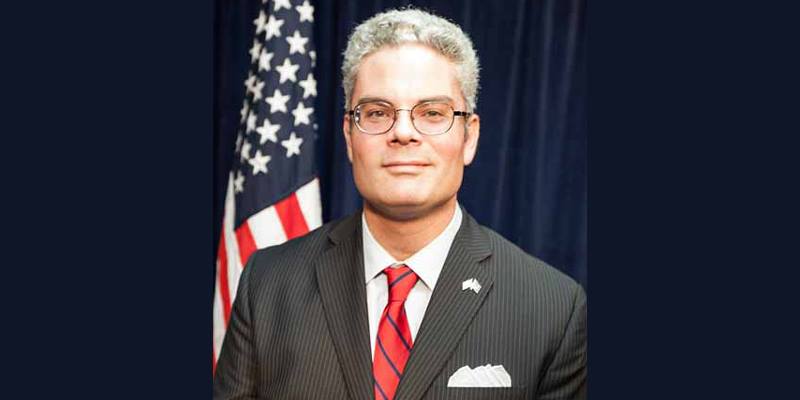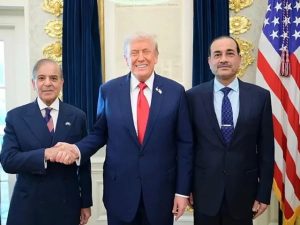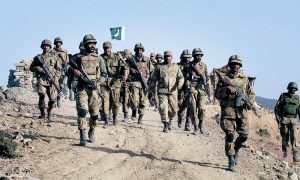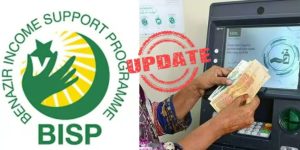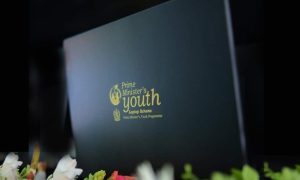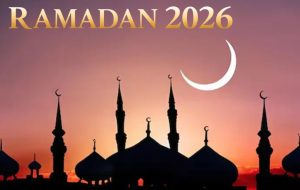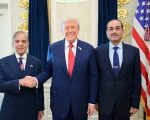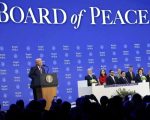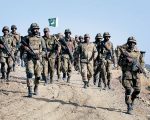LAHORE (UMER SHAMI / USMAN SHAMI) – “The progress made by Pakistani society and government during the last two years has been extremely encouraging. Pakistani people have done well not only from security point of view but also in terms of dealing with economic, political and governance challenges, something that international community has also started to notice and as a result I increasingly see a positive trajectory starting to emerge in international press”, these views were expressed by the US Consul General in Lahore, Mr. Zachary V. Harkenrider, in an exclusive interview with the Editorial Board of Daily Pakistan.
It was his first comprehensive interview with any Urdu media outlet. Mr. Herkenrider is a veteran diplomat with vast experience, spanning over a decade, of working in developing countries. He came to Pakistan in July 2013 as Deputy Political Counselor at the US embassy in Islamabad and assumed charge as the Consul General in May 2014. His previous diplomatic appointments in Afghanistan and India have aided him in forming his unique perspective about the challenges and opportunities faced by the countries of this region. He shared those candidly with the panel in his usual eloquent and witty narrative.
Mr. Herkenrider while commenting on importance of the role of democratic traditions and institutions in combating extremism stressed that for democracies to be successful many things are required but most important of them all is time. Time for political parties, government, and all the people involved to truly become comfortable with its forms, habits and structures. Successful transition in Pakistan from one elected government to another in 2013 truly is remarkable and all the observers also concur to the notion that democratic dispensation over a sustained period of time is essential to coping with numerous social challenges, he explained.
He also accepted that success stories emerging from Pakistan are not adequately highlighted in the international press, however he pointed out some glimmers of hope. “Recently even international press has started to notice positive things. New York Times published a very encouraging piece regarding improving security situation, and another one in Wall Street Journal vouched Pakistan as possible investment destination.”

The US Consul General emphasized that United States is not at all concerned with growing strategic and economic relations between China and Pakistan. “China Pakistan Economic Corridor Project (CPEC) is being viewed positively by us and it is complementing our own efforts. We want to see Pakistan as a secure, economically stable and prosperous democracy.
Nothing being done under CPEC is at the expense of our interest, rather what we are doing complements its goals. We have also built more than 1000 kilometers of paved roads in FATA. In principal we believe it’s a good opportunity for Pakistan.” The economic development of impoverished areas of Pakistan through this project is indeed need of the hour, he added.
The Consul General expressed his faith in the safety of Pakistan’s nuclear arsenal adding, “We are very satisfied with Pakistan’s safeguards on its arsenal, however, in terms of engagement we encourage them to be responsible like we encourage all other nuclear states.”
He also added that United States views its relationships with India and Pakistan independently and if both parties seek and accept its role, it can play a part in resolution of the disputes between the two countries. “We however cannot force both the parties to agree to US arbitration on their bilateral disputes, against their wills. They are both sovereign nations.” he said.
Responding to a question regarding recent visits of Pakistan’s Prime Minister and Army Chief to the US, Mr. Harkenrider said, “These visits represent the tremendous progress we are making in bilateral relations. Within two years there have been two visits by PM Nawaz to the US, Secretary Kerry has been to Pakistan a couple of times, and there has been a regular exchange on several levels between the two governments. It’s important to mention that Pakistan and United States have been close allies since 1950s, although there have been periods of tensions, as could be between any two countries in the world, but these are balanced by the fact that we keep coming together, year after year, which signifies the durable nature of this relationship. During Prime Minister’s visit along with the security situation, focus was also on economic and commercial ties, and one of Prime Minister’s major appearances was at the US chamber of commerce. Bilateral trade between the two countries stands at around $5 billion but there’s tremendous potential for growth.”
The US Consul General also revealed that since 2001 United States has provided around $30 billion to Pakistan in civil and military aid, including reimbursements for Coalition Support Fund. He stressed that ultimate goal of the assistance is to help Pakistan become a stable democratic and economically prosperous state.
United States has prioritized energy as major area of investment in Pakistan. USAID has spent about $1 billion since 2009 in this sector, as a result 1700 additional MWs have been added to grid partly through new projects and partly through rehabilitation of existing Power Plants and Dams which include Mangla, Tarbela ,Jamshoro, Guddu and Muzaffargharh Power Projects.
Moreover, about 124 MWs are being saved due to conservation measures and efforts undertaken with the help of US government. USAID has installed automatic meter reading equipment at all grid stations throughout Pakistan, and has built computerized control rooms for distribution companies. Previously, motorcycle riders had to go around taking readings at grid stations, by the time Distribution Company received the information, it was already stale resulting in unscheduled load-shedding.
However, now they have the capability to monitor load on grid stations in real time. This enables them to plan for load shedding resulting in 94% reduction in unscheduled load-shedding. Better grid management systems have delivered savings worth $157 million to the distribution companies. Moreover, USAID has presented comprehensive study of Pakistan’s national grid to the government which could be used to plan up-gradation of existing or installation of new power plants.
In the education sector, Mr. Harkenrider pointed out that USAID has trained 56975 existing teachers and administrators through 3 month refresher courses. Similarly 7000 new teachers have been trained by providing them scholarships. One thousand government schools have also been refurbished or rebuilt through out the country benefitting three hundred thousand students. Moreover, 17 faculties of education have been built in universities across the country, out of which Bahauddin Zakria University, Fatima Jinnah College, University of Education Lahore, Punjab University and Islamia college Bahawalpur are in Punjab. This will provide necessary infrastructure and essential training for the next generation of educators.
He further added that over the last 5 years 12000 scholarships have been awarded to Pakistani students including the full bright scholar program. A new girls’ hostel was also built at FC College Lahore with housing capacity of 384 students.
Responding to a question regarding whether these measures are translating into goodwill among the Pakistani population at large, the Consul General added, “In future when people will reflect on the history of the US and Pakistan relations, that transcends particular moments of differences, they will discover and appreciate what we have done. US government and people know and appreciate the tremendous sacrifices Pakistan has made in the war on terror, however, just like Western media doesn’t follow a lot of positive things, sometimes the discourse in Pakistan also doesn’t reflect on the diverse initiatives being pursued to improve the quality of life for millions of Pakistanis. We work hard as diplomats to close that gap.”
Regarding the future of Afghanistan, Mr. Harkenrider said, “I do see a clear and compelling pathway to economically integrated and peaceful region in the future. You have right people with a constructive mindset on both sides of the border. There is a clear desire by all parties to come together on a macro level, however, the mechanics of it are being worked over.” He added that detailed deliberations for bringing peace and stability in Afghanistan were also held in the recent high level interactions between Pakistan and US.
The Consul General also appreciated Pakistan’s success in War against terror and specifically the outcomes of Operation Zarb e Azb. He stressed that a range of initiatives are needed to combat violent extremist behavior and National Action Plan represents a good attempt to deal with this threat.
Regarding the presence of ISIS in the region he was of the view that thus far there have been reports of some existing militant groups or extremist elements in the region appropriating the ISIS franchise as a way of lending grandeur to their activities. “We take this threat seriously. United States efforts to combat violent extremism are inline with efforts of most states, recent Paris attacks and numerous deadly assaults on the lives and properties of innocent civilians that have occurred in Pakistan over the years show it is not a problem limited to United States, but a problem that we all share.”

